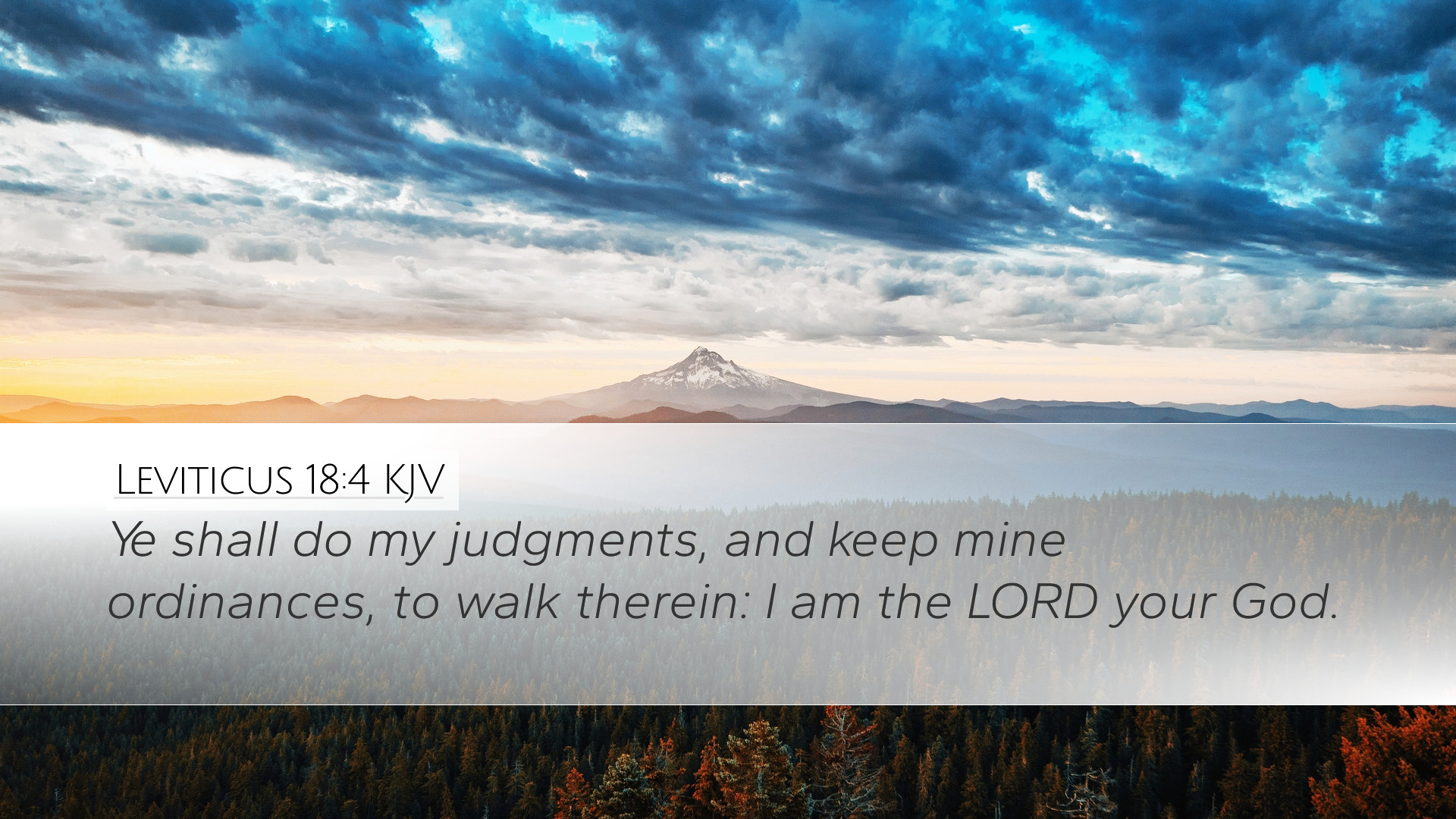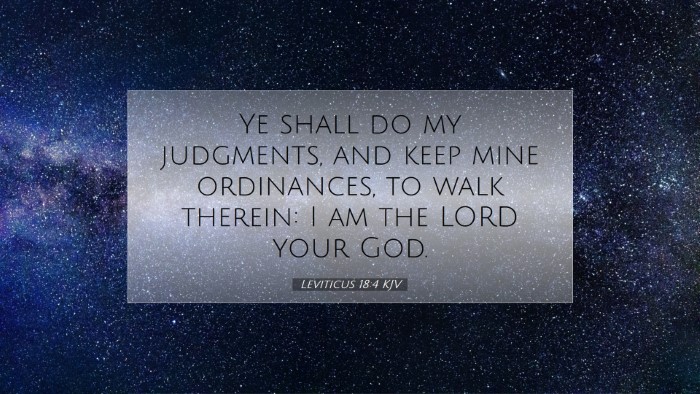Commentary on Leviticus 18:4
Verse Reference: Leviticus 18:4: "Ye shall do my judgments, and keep mine ordinances, to walk therein: I am the LORD your God."
Introduction
This passage is pivotal within the larger context of the Holiness Code, outlining the ethical and moral requirements for Israel. Leviticus 18:4 serves as a clarion call for divine obedience, linking the behaviors of the Israelites directly to their covenant relationship with God. The verse encourages not only adherence to laws but fosters a deeper devotion and holy living expected as the chosen people of God.
Contextual Background
Before delving into the specifics of Leviticus 18:4, it is essential to consider its place within the Torah. Leviticus focuses on themes of purity, holiness, and the proper way to worship God in the community. The directives provided in this chapter come against the backdrop of pagan practices that the Israelites were to avoid, highlighting the need for a distinct identity as God's people.
Exegesis of Key Terms
- Judgments (מִשְׁפָּטִים): This term refers to the legal decrees established by God, designed to promote justice and righteous behavior.
- Ordinances (חֻקִּים): These are the statutes and commandments that outline conduct. They serve as guiding principles for the moral and ritual life of the Israelites.
- Walk therein: This phrase signifies a continual practice and commitment to living according to God’s laws, suggesting a lifestyle rather than mere compliance.
- LORD your God: The use of the Tetragrammaton (YHWH) in this context reinforces the covenant relationship, establishing God as intimately connected with His people.
Theological Implications
This verse encapsulates the essence of what it means to live in covenant with God. Both Matthew Henry and Adam Clarke note that God's directives carry the weight of authority and expectation. To follow God's judgments and ordinances is not merely an act of ritual but is rooted in a relational dynamic that calls the community to embody divine qualities.
The call to “walk therein” implies an active and ongoing commitment to God’s principles. It challenges the individual and collectively as a nation to engage with the laws of God as a reflection of their identity as His people. This affirms the belief that ethical lives are a response to God's sovereign grace and chosen status.
Ethical and Moral Applications
-
Personal Integrity: The call to observe God’s judgments calls individuals to have integrity in all aspects of life, aligning their actions with divine instruction.
-
Community Responsibility: The ethical standards established here are not solely personal; they extend to the entire community. Pastors and leaders are tasked with fostering a congregational culture that embodies these values.
-
Holiness and Distinction: The distinction between the practices of the Israelites and surrounding nations is amplified, emphasizing the call to holiness as a response to divine election.
Reflection on Obedience and Worship
Reflecting on this verse offers deep insights into what true obedience should look like. Albert Barnes mentions that God's ordinances are not burdensome but are intended for the good of the people. Observance of the law should foster a life of worship that pleases God. True worship involves alignment of heart and action, which this passage calls us to maintain.
Additionally, the stipulation that the people “shall do” His judgments connects worship with action. Obedience in one’s daily life is an outflow of love and reverence for God, suggesting that worship transcends the ritual and is to be lived out in practical ways.
Conclusion
Leviticus 18:4 serves as a foundational cornerstone for understanding the nature of covenantal living in the life of Israel. The insights garnered from public domain commentaries by Matthew Henry, Adam Clarke, and Albert Barnes illuminate the text's theological, ethical, and practical implications. For pastors, students, theologians, and Bible scholars, this passage underscores an essential truth: that adherence to divine law is paramount in reflecting God's holiness in the world.
In considering the challenges to uphold such ordinances amidst contemporary moral dilemmas, may believers draw strength from this verse, embracing both the joyous responsibilities and the high calling of living in covenant faithfulness with the Lord.


